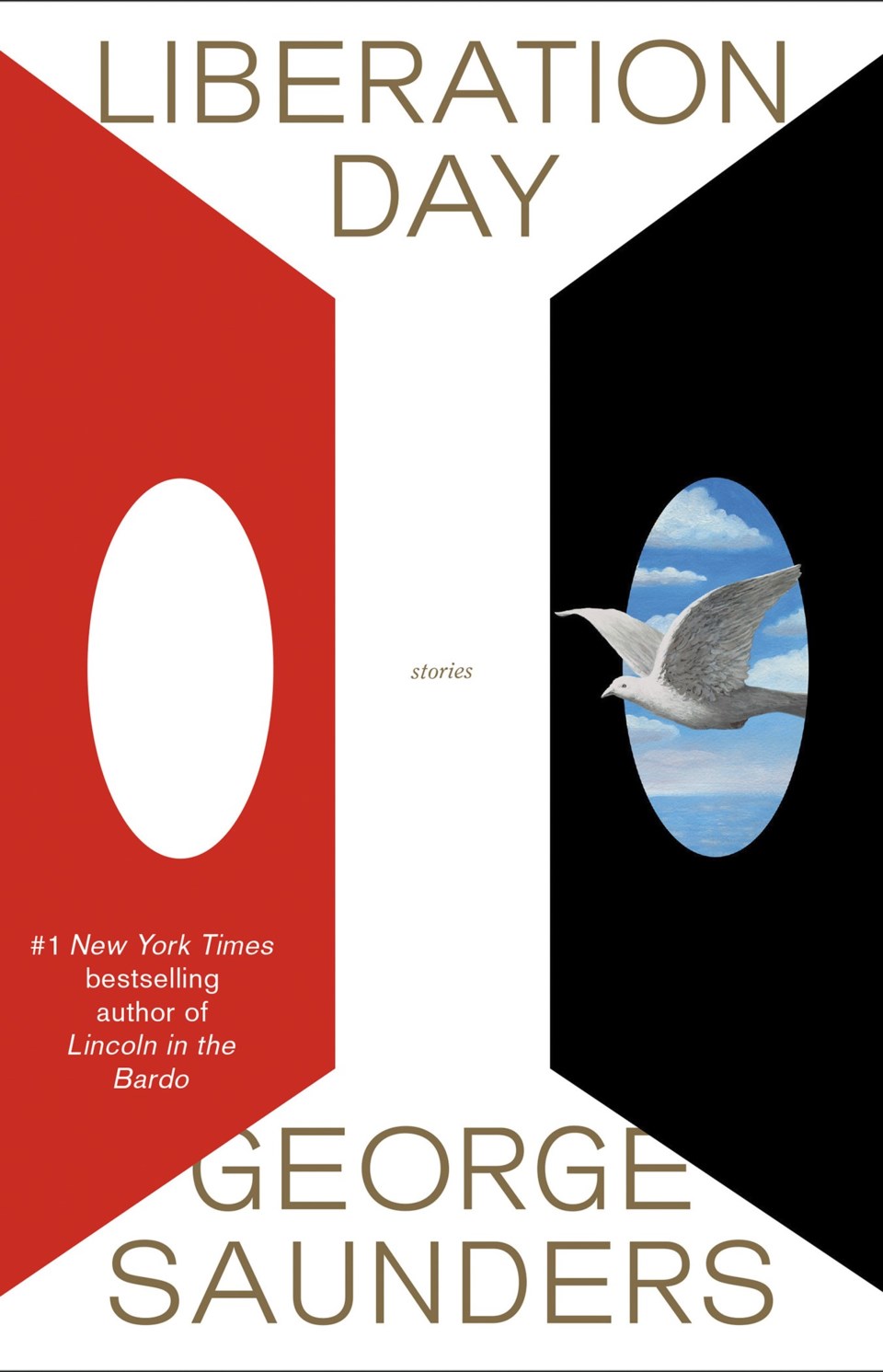“Liberation Day,” by George Saunders (Random House)
George Saunders is back with a new collection of short stories that feature his usual dystopian worlds and heartland characters whose lives and language have been fractured by social and economic pressures they barely understand.
In the title story, “Liberation Day,” the protagonists are rich enough to afford an “entertainment center” where less fortunate humans whose memories have been wiped clean are pinioned to a wall to reenact historical dramas like the Battle of the Little Bighorn for the amusement of the owners’ wealthy friends.
The premise recycles a conceit he used a decade ago in “The Semplica Girl Diaries,” in which young women from poor countries were trafficked as lawn decorations to status-conscious American homeowners in a grotesque parody of keeping up with the Joneses.
In this collection of nine stories, his first since 2013’s “Tenth of December,” Saunders’ outrage runs deep, and at least a couple of them, including “Love Letter” and “The Mom of Bold Action,” can be read as parables of our current political situation.
In the latter, a small-town mom who fancies herself a writer and lives in “a region of failing strip malls and three lavish mega-churches in a row,” flirts with vigilantism when her sweet but dorky son gets pushed to the ground by a mentally disturbed homeless man. Ultimately, Saunders, for whom kindness is a paramount virtue, pulls her back from the brink and restores her moral compass, albeit imperfectly.
In “Love Letter,” which is set in the near future during the fourth administration of a Trump-like family, a doting grandfather advises his beloved grandson to steer clear of political activism even as he questions his and his wife’s own complacency during a “critical period” when democracy was being dismantled. Instead, they did jigsaw puzzles together while the TV blared “this litany of things had never before happened.”
“It did not seem,” he writes, “that someone so clownish could disrupt something so noble and time-tested and seemingly strong, something that had been with us literally every day of our lives. We had taken, in other words, a profound gift for granted. Did not know the gift was a fluke, a chimera, a wonderful accident of consensus and mutual understanding.”
In last year’s “A Swim in a Pond in the Rain,” Saunders offered up a master class in fiction writing by analyzing seven short stories by Chekhov, Turgenev, Gogol and Tolstoy. You could buy that book if you want to understand what made those stories great. Or you could simply read the stories in this one.
Ann Levin, The Associated Press



